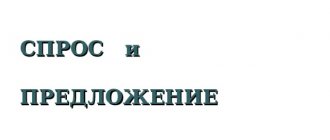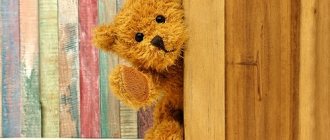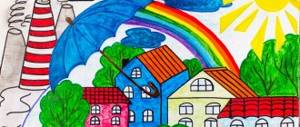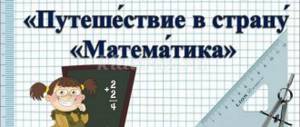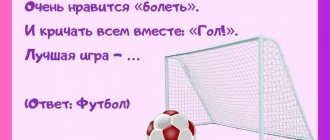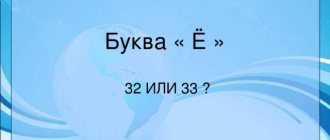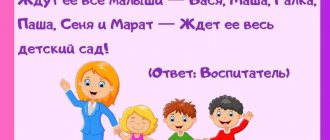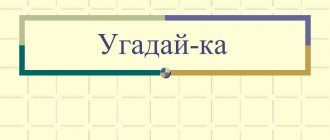Simple riddles
About animals
The muzzle is mustachioed, the fur coat is striped.
He washes his face often, but doesn’t know how to use water. (Cat)
We’ll just ask about it: Who carries their house on themselves?
(Snail)
She lives in a deep forest in a fluffy fur coat. In a hollow on an old tree, Nuts are gnawing on everything.
(Squirrel)
There was a pillow with needles lying between the fir trees. She lay there quietly, then suddenly ran away.
(Hedgehog)
Lives in the swamp in the summer and you will find her there. Green frog Tell me who?
(Frog)
Under a huge pine tree He sleeps in a den in winter. And when spring comes, he will instantly wake up from his sleep.
(Bear)
Instead of a nose - a snout, Instead of a tail - a hook. A shrill, ringing voice, from whom?
(At the piglet)
She sits on a chain, guarding the master's house. If someone suddenly comes, he lets you know with a ringing bark.
(Dog)
Little baby, So afraid of the cat! Her little house is hidden in a hole, And the baby’s name is...
(Mouse)
Hiding somewhere in the woods, Very cunning...
(Fox)
In the cold autumn forest, He wanders gloomy and hungry.
(Wolf)
Riddles about the seasons
I dusted all the paths and decorated the windows. She gave joy to the children and took them for a ride on a sled.
(Winter)
The streams are running faster, the sun is shining warmer. He waves his magic wand and the snowdrop blooms in the forest.
(Spring)
The meadows are turning green, There is a rainbow-arc in the sky. The lake is warmed by the sun, inviting everyone to swim...
(Summer)
She came without paints and without a brush, and repainted all the leaves.
(Autumn)
Riddles about nature
Thunder thunders terribly in the sky, telling everyone to run home! The goat runs to hide, It begins...
(Storm)
Drops of moisture on the leaves, on the grass and on the flowers. What kind of miracles are these? Glistens on the grass...
(Dew)
The clouds obscured the sun, and suddenly thunderous thunder was heard. The drops began to knock together, Nature really needs him.
(Rain)
In the blue sky, as if on a river, White sheep are swimming. They travel from afar, but their name is...
(Clouds)
Different fish live in it, everyone calls it...
(Pond)
A selection of economic fairy tales for older preschoolers.
At this time, nature was truly amazing and extraordinary. Unprecedented animals and birds lived in the forests, and there were a lot of fish in the rivers; Everything around was fragrant with bright colors. There was a legend that a miracle river flows far from this city. It is so clean and transparent that all the fish that live there are visible from the shores.
The greedy Neil found out about this. He gathered his servants and went in search of this miracle river.
I saw the Nile River and couldn’t believe my eyes: it was wide, crystal clear, and there were no visible fish in it. Then he ordered his servants to catch everything that was in this river, and the servants set to work. They fished for a day, two, three until they caught everything that was there.
Nile became even richer and greedier. Now I wanted to drain this river. He ordered his servants to dig the deepest well in the world and transfer all the water from it to his well.
That's what the servants did. For a long time they carried water from this miracle river until they completely drained it. Nile became the richest in his city, since water in those days was worth its weight in gold.
The gods found out about this, became angry and summoned the Nile to them.
- Why did you catch all the fish? - asked Neptune.
- Why did you drain the river? - Zeus asked. -Who gave you the right to destroy what nature has created?
But Neil had nothing to answer the gods. And then they decided that he could atone for his guilt only if he returned everything to normal. Neil was unable to accomplish this, despite his wealth and power. Then the gods punished the greedy master and turned him into a long and wide river. And this spell will disappear only when people have exhausted all the water from this river.
After this, people decided that this should not happen again on Earth. They will always save water and use it only for its intended purpose. They will try to ensure that the rivers never disappear from the face of the Earth and that people like the Nile never return to us.
Since then, that river has flowed and every year it becomes deeper, more beautiful and wider.
Fairy tale
"Household".
The kids decided to help mother Goat with the housework: cook dinner, clean up the mess. They thought that the soup would be delicious if it was made from cabbage, potatoes, apples and nuts. “Put everything in a saucepan at once, add water, and put it on the stove.”
, says one kid.
“The carpet will be clean if you run, tumble, and jump on it
,” another kid expresses his point of view. Mama Goat was not happy when
I saw "help"
their kids.
She said: “You need to know the secrets of housekeeping
.
The kids diligently learned the secrets of home craftsmanship. And when Mother Goat left on business, the kids agreed on what work each of them would do. "I 'll cook a delicious lunch"
, says one kid.
“I will repair the vacuum cleaner and quickly
Description
The “Young Economists” laptop is aimed at the economic education of children, developing financial literacy and expanding their understanding of the budget, money, goods and services.
Contents: Lotto “Economic Tales”, “Economic Dictionary”, Lotto “Shops” with a set of goods, card index of problem situations, Game “Name the Professions”, set of layouts for drawing up a Family Budget, game “You can or cannot buy”, card index of games, game “Paired pictures - Currency”, set of cards - Lay out and tell, characters, Game “Professions”, Cards What do fairy tales teach, riddles in the wallet, Proverbs and sayings, poems, interactive window “Learning to save”, coloring pages, pockets, title page. Author: Dorokhina Olga Valerievna.
Video review of this laptop with comments on the content on my YouTube channel: Video review of the “Young Economists” laptop
Order through the shopping cart, by email or through the Robokassa button. Price 300 rub. for the electronic version.
Pay 300 rubles via robotic cash register:
Robokassa
Pay via Yandex wallet: Yandex wallet
Top up your phone account: +79384771532 Megafon (or Megafon bank card: 5446391023440054)
When paying via Yandex-money or Megafon number, please inform us about the name of the order and payment by email
{lang: 'ru'}
Fixies
“The history of things is money” - in just a minute the child will learn what money is.
“How Money is Made” - the episode talks about the intricacies of making banknotes. For example, what kind of paper is used for this and why.⠀
“Money” - The Fixies begin to count who helped whom how many times, and quarrel. To make peace, they decide to pay each other for any help. But nothing good comes from this idea. At the end of the cartoon, the Fixies understand that quarreling with their loved ones over money is stupid.
Card index of games for economic education of preschoolers
Content. Children look at the cards, name the activities of the adults, the result obtained, and highlight the main and additional incomes.
"Freight train"
Goal: To consolidate children’s knowledge about the place of manufacture of goods; classify goods by place of production.
Material: Cards with the image of the product, a flat image of a freight train with wagons.
Contents: Children lay out goods among the carriages so that each contains goods that are identical at the place of production. For example, meat products are products of a meat processing plant, dairy products are products of a dairy plant, etc.
Option. Children group objects by place of production: furniture - furniture factory, dishes - earthenware factory, toys - toy factory, etc.
"Product routes"
Goal: To develop in children the ability to distinguish goods according to their belonging to a certain group (household appliances, industrial goods, furniture, agricultural products, etc.)
Material: Pictures depicting goods or real objects and toys, signs with the name of stores: “Clothing”, “Furniture”, “Household appliances”, “Agricultural products”, etc.
Content. Each child chooses a picture card, names what is drawn on it, and determines which store this product can be taken to. The winner is the one who correctly matches the cards to the signs with the name of the store.
"Put it together"
Target. Expand children's understanding of products; teach how to group them according to different characteristics.
Material. Map (panel) depicting various products.
Content. Each child has a card with different objects drawn on it. Using Euler-Venn circles (diagrams), children combine objects according to various criteria: edible - inedible; toys - tools; goods that are mandatory for everyone are optional, etc.
"Guess where they sell"
Target. Teach children to correlate the name of the store with the goods that are sold in it; develop the ability to generalize groups of objects.
Material. Pictures depicting vegetables, fruits, furniture, shoes, etc.
Content. Children select groups of cards with images of vegetables, fruits, furniture, etc. Lay them out in front of the corresponding plot picture, where the stores “Furniture”, “Vegetables”, “Supermarket”, etc. are drawn. Establish a relationship between the name of the store and the goods that are in they are sold there.
"A toy shop"
Target. Give children the opportunity to practically carry out the buying and selling process; develop the ability to “see” a product: material, place of production, price (cost).
Material. Various toys, price tags, trademarks, play money.
Content. Before buying a toy he likes, the child names the material from which it is made (wood, metal, plastic, fabric, paper, etc.). Place of production (where and who made it). Next, the price of the toy is determined. The child counts out a certain amount of money and buys a toy. As toys sell out, the seller adds new ones.
Lapbook “Young Economists”
October 6, 2020 dorohinaov
300 ₽
Category: Lapbook Tags: literacy, money, children, buy, laptop, , Financial, templates, economics, economic education
- Description
Smeshariki
“Smeshariki” has several dozen three-minute cartoons on the topic “The ABCs of Financial Literacy.” Here are some of them:
“Paradise Island” and “Noble Cause” are about investing. In one example, the hero risks a lot of money in pursuit of big profits and loses it. From the cartoon, a child learns about the different risks of investing money and coconuts.
“Cinderella” is about credit. Nyusha takes out a loan for an expensive dress. And only then does he find out that the money needs to be returned. You have to work hard for this.
“Golden Apple” is an issue about expense planning. The main idea of the series is that you need to think carefully before buying something.
“Cactus in a Bag” is a story about a purchase and sale agreement. The idea: you need to watch what you are buying and read the documents so as not to be deceived. If you do everything correctly, then the law is on your side.
“A rainy day” is about savings. Smeshariki's electricity was turned off for non-payment. Fortunately, one of the heroes had savings - just in case.
“The Best of the Best” is about budget allocation. Sovunya won the prize and, together with other heroes, decides how to spend the money. As a result, they are divided into several parts.
"Do you have a plan?" — about how to set financial goals and go towards them. The heroes manage to save up for a scooter.
“Just in case” is about property insurance, which helps compensate for losses in the event of unexpected disasters.
Read on the topic: Financial lessons from Matroskin the cat and other cartoon characters
